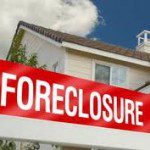Foreclosures in Orlando dropped 14 percent from March to April of this year, and the city is one of 9 others in Florida which saw a decline, according to data released on Thursday by ForeclosureDataOnline.com. Only Jacksonville had an increase; 1.4 percent from March to April.
 But, there is no cause for celebration. The slowdown in foreclosure activity resulted from the recent robo-signer foreclosure documentation problems that surfaced last fall. Lenders, who have been re-evaluating their foreclosure processes in light of the discovery last year, have put in place tighter lending standards which have slowed the process. Many banks reviewed thousands of foreclosure documents, delaying new foreclosure processing.
But, there is no cause for celebration. The slowdown in foreclosure activity resulted from the recent robo-signer foreclosure documentation problems that surfaced last fall. Lenders, who have been re-evaluating their foreclosure processes in light of the discovery last year, have put in place tighter lending standards which have slowed the process. Many banks reviewed thousands of foreclosure documents, delaying new foreclosure processing.
Court delays too, have slowed the foreclosure process, where approval by a judge is necessary. According to ForeclosureDataOnline.com, what would usually take about four months to process, is taking almost 17 months from the time a property receives its initial notice of default until it is put up for auction.
Other Florida cities that have seen a decline in foreclosures are:
- Miami -8.5%
- Fort Lauderdale -12.3%
- Tampa -15.3%
- West Palm Beach -14.6%
- Pompano Beach -12.5%
- Hollywood -9.5%
- Kissimmee -16.3%
- St. Petersburg -23.4%
- Jacksonville +1.4%
“As lenders make progress tackling a backlog of pending foreclosure cases, March foreclosure data suggest foreclosure activity may be starting to increase as a more accurate reflection of the actual status information of the real estate market is revealed,” ForeclosureDataOnline.com said in a statement.
Statewide, foreclosure activity dropped by 12 percent from 9,353 in March to 8,244 in April of this year.
ForeclosureDataOnline.com found about 1.8 million homes were delinquent or in foreclosure last month and will soon add to the 3.5 million existing homes already on the market.
High unemployment, a weak housing market, falling home values and lack of access to credit, will likely continue to drive foreclosures this year.
Meanwhile, foreclosure activity will likely begin to increase again, after banks gradually work their way through the backlog of thousands of foreclosures.


